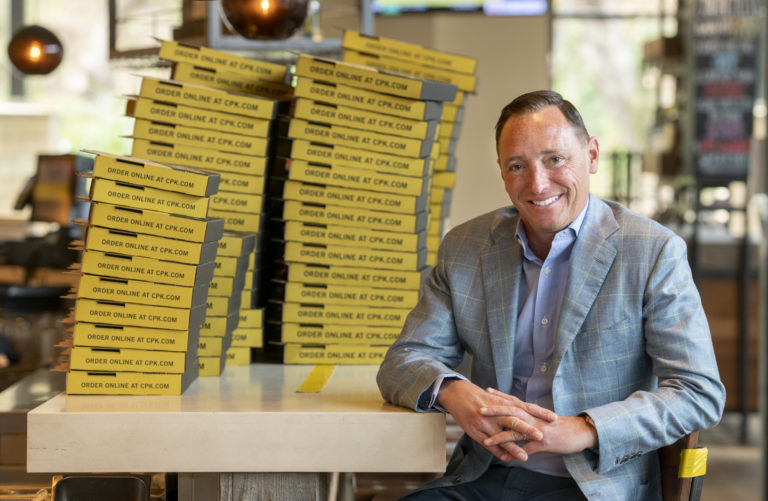
“The company was very forward-thinking in taking the restructuring steps early in the pandemic and then was able to exit in a much better financial position and have so much momentum going forward,” said Tirnauer, who took over from CPK’s interim CFO Carey Carrington last month.
“Right now we are catapulting ourselves forward as fast as we can at a time when other folks (are) going backwards because they’re facing challenges we’ve already gotten through, as well as the (Covid-related) challenges that all of us in the industry are facing.” The Redondo Beach-based fast-casual restaurant chain filed for Chapter 11 protection on July 29 in the U.S. Bankruptcy Court for the Southern District of Texas, citing liquidity issues and state-mandated closure of indoor dining that represented about 78% of its net sales.
CPK’s creditors, led by Sawtelle-based Crescent Capital Group, agreed to convert more than half of the company’s debt into equity, reducing its long-term obligations from approximately $403 million to $174 million. The deal also included $46.8 million in new financing to support ongoing operations.
“Once we get through the unknowns with Covid, we’ve got a very reasonable capital structure for the size of our company and the go-forward profitability that … will really allow for the expansion,” Tirnauer said. “Instead of using that money for interest, we can use it for new store (openings) as well as new business development.”
Prior to the pandemic CPK had roughly 10,000 employees, 181 locations in 29 states, and 36 franchised restaurants at airports in seven countries. It now operates 155 restaurants and has 7,500 workers, about 75% of whom are back at work.
“We anticipate on bringing the rest back as soon as we can get into more nor
The management team also renegotiated or canceled some leases, generating about $70 million in savings. The move gave the company “a lot of near-term flexibility while the operating conditions are so up in the air,” he added.
While the major portion of CPK’s revenue comes from its restaurants, it also offers takeout and delivery and has a licensing agreement with Nestlé to distribute its pizzas to some 20,000 supermarkets and wholesale clubs. The retail offerings may soon include other popular items from CPK’s menu, such as salads or pasta dishes.
“We’ve got a very successful product and market share in what we do best — which is pizza — and we could leverage some of our other product categories through those channels, which obviously is a revenue and profit generator, and also serves to increase brand awareness,” Tirnauer said.
“It’s probably too early to put a timeline on it because it obviously it takes time and resources, and the availability of both of those is partially determined on how quickly the world gets back to some level of normalcy,” he added.
The company posted $98.7 million in sales from August through November, according to the documents it filed with the Securities and Exchange Commission.
CPK also partnered with Costa Rica-based Morpho Travel Retail to open two airport restaurants in Chile and Costa Rica. Other new franchises include restaurants in the Philippines and South Korea.
“International franchising takes time, but then it becomes an annuity,” Tirnauer said. “It’s worth the investment in time, but you don’t get a big bang right away, as opposed to opening your own restaurants where you get the sales and profitability from day one.”
Beverly Hills-based lawyers Rick Rosenfield and Larry Flax founded CPK in 1985. PepsiCo Inc. bought a controlling interest in the company in 1992 and five years later sold it to Buckmann Rosser Sherrill & Co., a New York-based private equity firm. In 2000, CPK went public and traded on Nasdaq. San Francisco-based Golden Gate Capital acquired the company in 2011 and had an 89% stake in the company before the bankruptcy.
